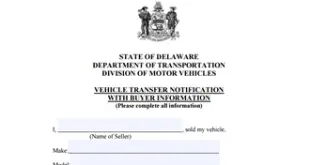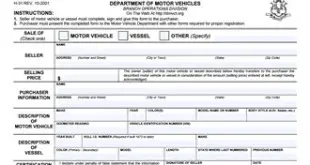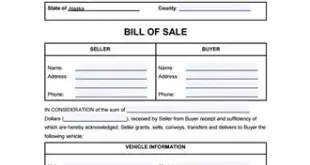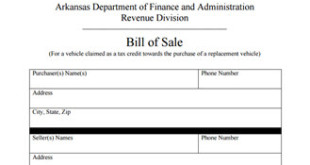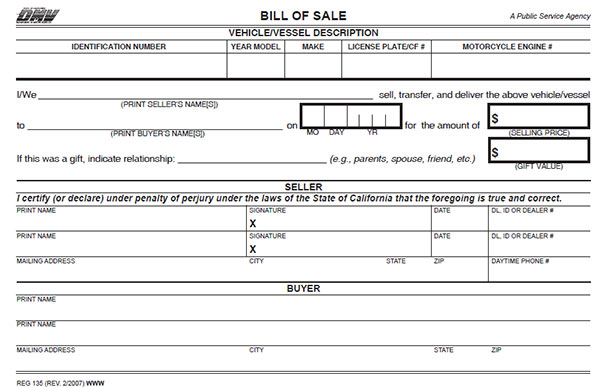
A bill of sale is a legal document that the seller uses to transfer the title of the vehicle/vessel to the buyer. It allows both the buyer and the seller to specify detailed information on the vehicle and the term of sales. California’s DMV provides an approved bill of sale.
Notice that you should use this bill of sale for vehicle/vessel sales only. If you sell other valuable property such as equipment, firearm, etc., you should use the equipment bill of sale, firearm bill of sale, and another bill of sale specified in the blank bill of sale section on our website. If you don’t find an appropriate bill of sale, you can use the general bill of sale form.
Both the seller and buyer must complete the following information on the bill of sale:
- The names, addresses, and signatures of both the buyer and the seller. Note that in California, the signatures of both parties must be included, although they do not need to be witnessed or notarized.
- Complete information on the vehicle, including make, model, year, and vehicle identification number (VIN).
- The date of the sale and the price that has been paid.
It is also important to note that if the vehicle is being purchased as a gift, there is a space on the California bill of sale form to indicate both the relationship and the value of the gift.
Whether you are the buyer or the seller, you must understand that a complete bill of sale protects your rights and spells out your responsibilities before the money actually changes hands. In addition, this protects your interest in the sale should questions about the terms of the sale arise at a later time.
Benefits of the California bill of sale form
Completing the sale with a bill of sale brings benefits to both buyer and seller, as mentioned below:
Seller
The bill of sale protects the seller from future disputes. For example, if a vehicle is being sold AS-IS, a bill of sale can be used to specify the condition of a vehicle when it was sold, protecting the seller from liability if there are any problems after the buyer has driven the car away.
Buyer
A bill of sale proves that the buyer is the new owner of the vehicle. The buyer can use the bill of sale to register the vehicle at the California Department of Motor Vehicles. In addition, the buyer can use the bill of sale to buy insurance for the vehicle.
If you are the buyer, you should make sure to keep the title after the sale. The title is the legal proof of ownership of the vehicle, not the bill of sale.
California’s notice of transfer and release of liability for used car sale
In case you sell your used car, besides the bill of sale, you must also complete the form REG 138, known as a notice of transfer and release liability form.
This form will release you, as the seller, from liability, e.g., in case the new owner involves in any criminal offenses, you will not be responsible. According to the state’s law, you must submit the form within 5 calendar days after selling the used car.
In addition, the new owner of the used car needs to apply for the title transfer to complete the process.
 Bill of Sale Form Free Bill of Sale Form at Your Fingertips
Bill of Sale Form Free Bill of Sale Form at Your Fingertips 